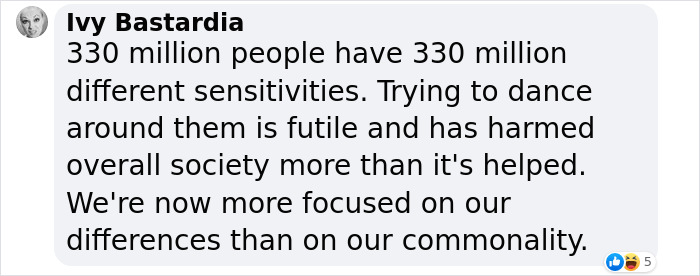Julia Louis-Dreyfus seemed to disagree with Jerry Seinfeld‘s concerns about political correctness in comedy.
The 63-year-old actress said she sees it as a “red flag” when people complain about political correctness but understands why some people might push back on it.
The remarks came after the Veep star was asked in an interview with the New York Times about her former Seinfeld co-star Jerry, who made headlines complaining about the “extreme left” and “PC (political correctness) crap.”
Julia Louis-Dreyfus said she thinks it’s a “red flag” when people complain about political correctness
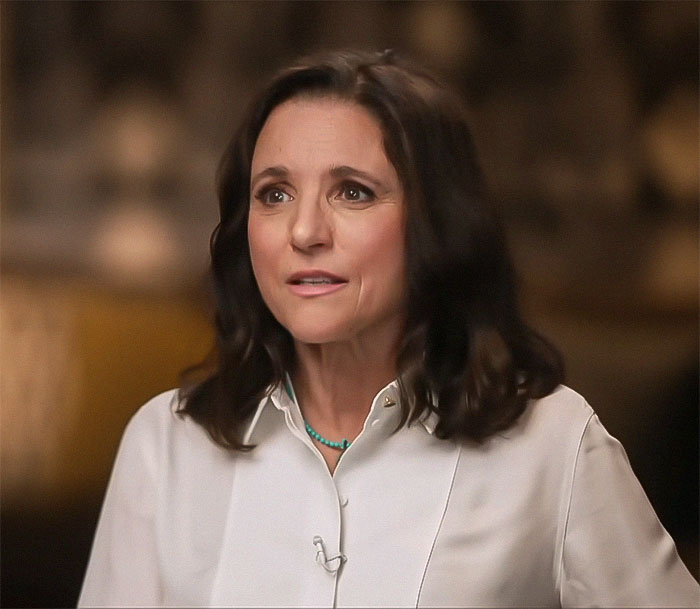
“Your former co-star Jerry Seinfeld recently made news for talking about political correctness in comedy,” the interviewer said in the conversation with the actress. “I’m wondering, as a famous comedian yourself, what [do] you think about that?”
“If you look back on comedy and drama both, let’s say 30 years ago, through the lens of today, you might find bits and pieces that don’t age well. And I think to have an antenna about sensitivities is not a bad thing. It doesn’t mean that all comedy goes out the window as a result,” Julia responded. “When I hear people starting to complain about political correctness — and I understand why people might push back on it — but to me that’s a red flag, because it sometimes means something else. I believe being aware of certain sensitivities is not a bad thing. I don’t know how else to say it.”
The Seinfeld and Veep star received the 2,407th star on the Hollywood Walk of Fame in 2010
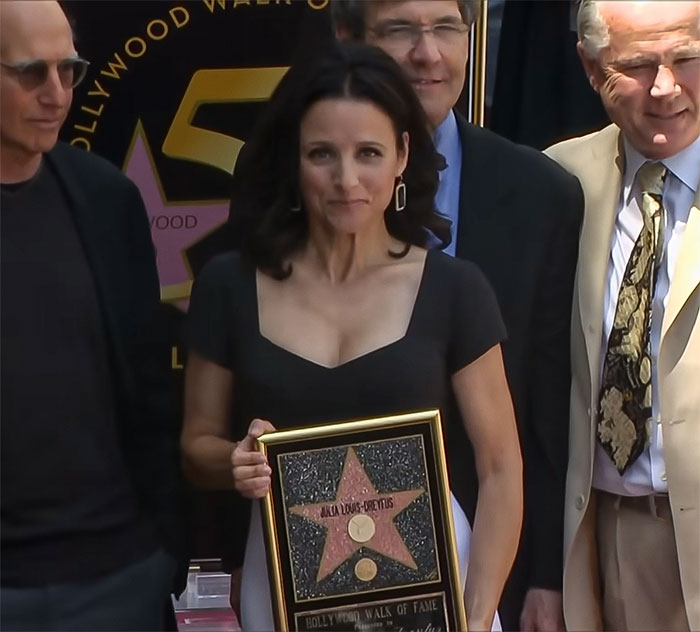
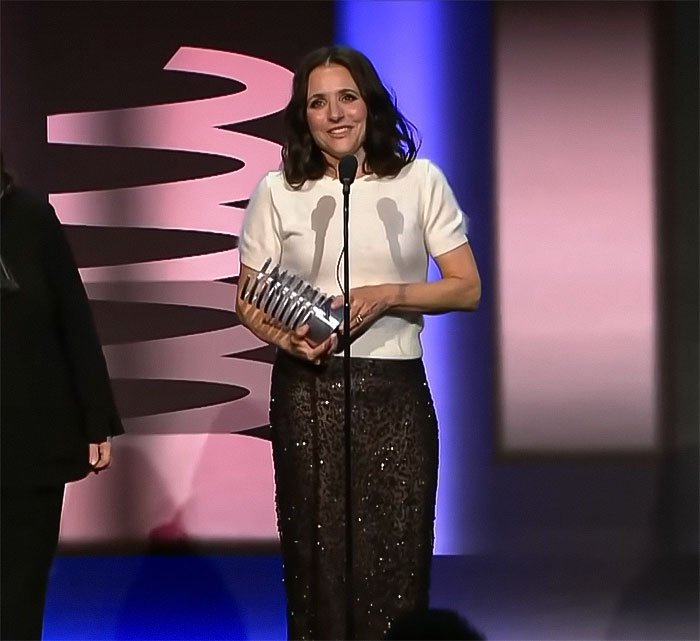
When asked about whether there were things she once did but no longer found funny, the Tuesday actress asked if they could revisit that question later. And that later came when the interviewer called her 11 days after she made the initial remarks.
“I wanted to make sure that I answered this whole idea of political correctness correctly, and I can’t really remember what I said. So I wanted to go back to that and be very clear about where I stand,” she said. “My feeling about all of it is that political correctness, insofar as it equates to tolerance, is obviously fantastic. And of course I reserve the right to boo anyone who says anything that offends me, while also respecting their right to free speech, right? But the bigger problem — and I think the true threat to art and the creation of art — is the consolidation of money and power.”
“All this siloing of studios and outlets and streamers and distributors — I don’t think it’s good for the creative voice. So that’s what I want to say in terms of the threat to art,” she added.
Earlier this year, Jerry Seinfeld sparked headlines after saying “extreme left and PC crap” is killing comedy
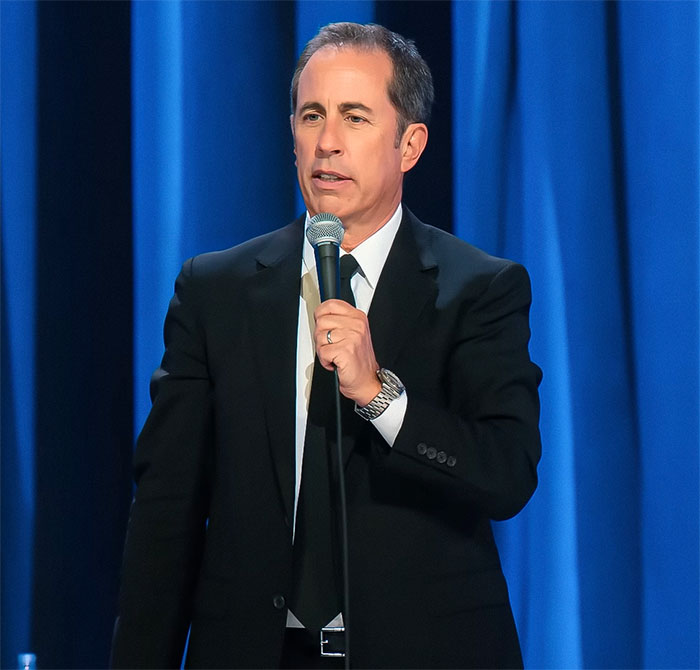
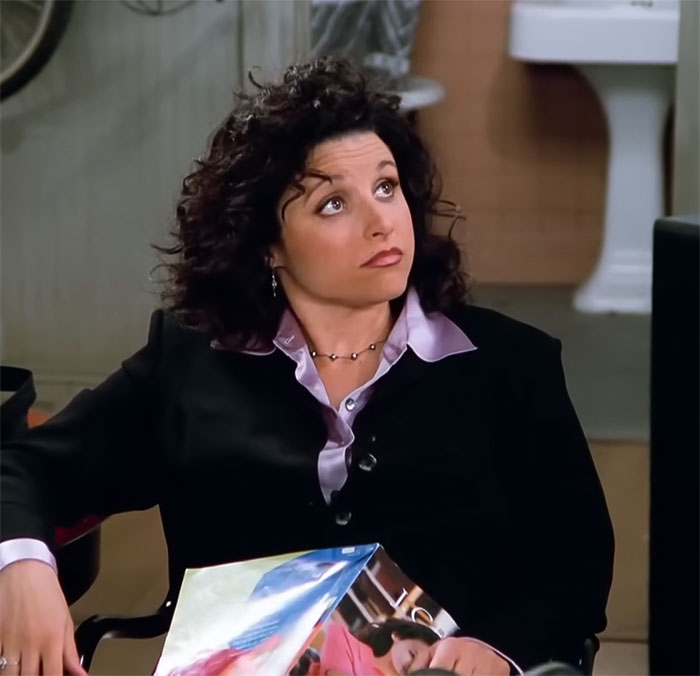
While answering another question about sensitivity in comedy, the iconic TV star said that the lens through which not just comedy but any art is created has changed.
“Even classically wonderful, indisputably great films from the past are riddled with attitudes that today would not be acceptable,” she said. “…I mean, things have shifted. And in that case, I would say, things have shifted very much for the good.”
JLD and Jerry share a significant history as co-stars on the widely acclaimed sitcom Seinfeld, which aired from 1989 to 1998. Jerry, the creator and star of the show, portrayed a fictionalized version of himself, while Julia Louis-Dreyfus played the quirky and memorable character of Elaine Benes. Their comedic timing contributed to the show’s immense popularity and critical acclaim, catapulting them both to stardom.
Both Julia Louis-Dreyfus and her co-star Jerry Seinfeld were catapulted to fame with their performances on the widely acclaimed sitcom Seinfeld, which aired from 1989 to 1998
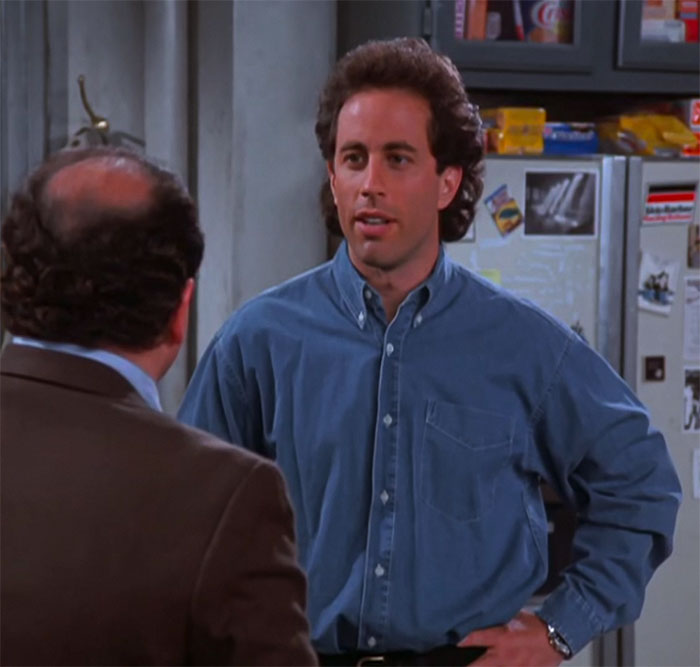
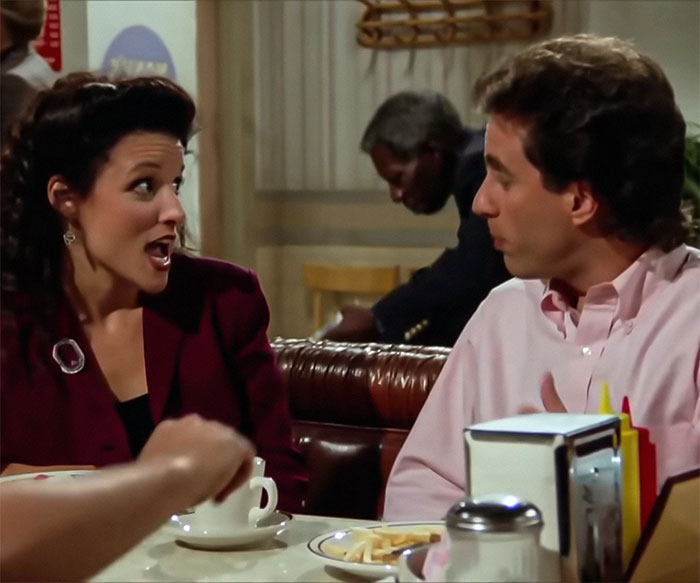
Earlier this year, the fellow Emmy award winner left the internet divided over his comments about the “extreme left and PC crap” killing comedy.
“Nothing really affects comedy. They need it, people need it so badly, and they don’t get it,” he said on The New Yorker Radio Hour podcast in April this year.
“It used to be, you would go home at the end of the day, most people would go, ‘Oh, Cheers is on. Oh, M*A*S*H is on. Oh, Mary Tyler Moore is on. All in the Family is on.’ You just expected, there’ll be some funny stuff we can watch on TV tonight,” he told the outlet. “Well, guess what — where is it? This is the result of the extreme left and P.C. crap, and people worrying so much about offending other people.”
The Unfrosted director also went viral last month for saying he “always wanted to be a real man” and misses “dominant masculinity”
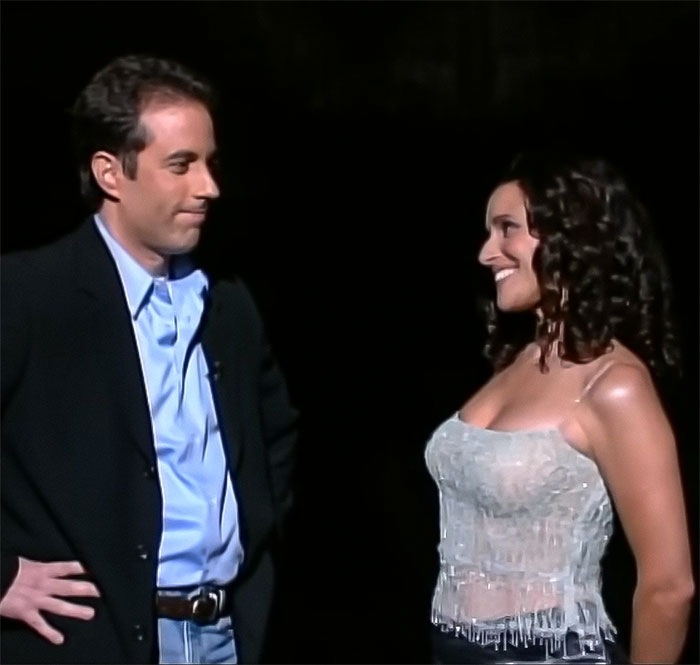
“When you write a script, and it goes into four or five different hands, committee groups — ‘Here’s our thought about this joke’ — Well, that’s the end of your comedy. They move the gates, like in skiing,” he continued. “Culture — the gates are moving. Your job is to be agile and clever enough that wherever they put the gates, I’m gonna make the gate.”
The longtime TV icon also spurred headlines last month for his comments on “dominant masculinity.”
The Bee Movie star was talking about the 60s—the era in which his new movie Unfrosted is set—and all the things he misses about his childhood.
“There’s another element there that I think is the key element [of the ‘60s], and that is an agreed-upon hierarchy, which I think is absolutely vaporized in today’s moment,” he told Bari Weiss in an episode of The Free Press’ Honestly podcast. “I think that is why people lean on the horn and drive in the crazy way that they drive — because we have no sense of hierarchy, and as humans, we don’t really feel comfortable like that.”
“The other thing is, as a man, I’ve always wanted to be a real man,” he added. “I never made it, but I really thought when I was in that era — again, it was JFK, it was Muhammad Ali, it was Sean Connery, Howard Cosell, you can go all the way down there — that’s a real man. I want to be like that someday… I miss a dominant masculinity. Yeah, I get the toxic, I get it, I get it. But still, I like a real man.”
Following Julia Louis-Dreyfus’ comments, some said she is “on point” with her views, while others said, “PC complaints [have] destroyed comedy”











